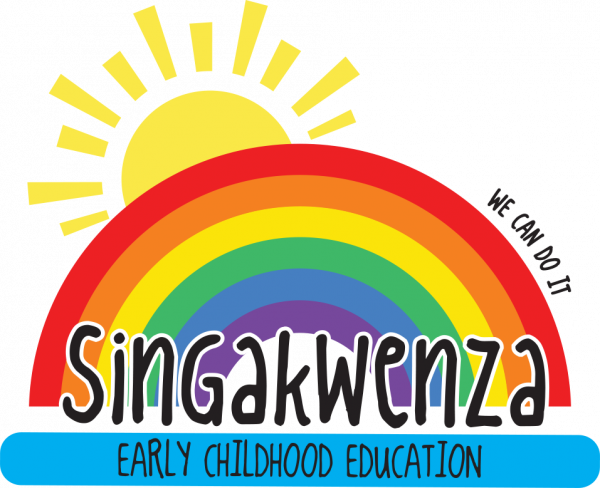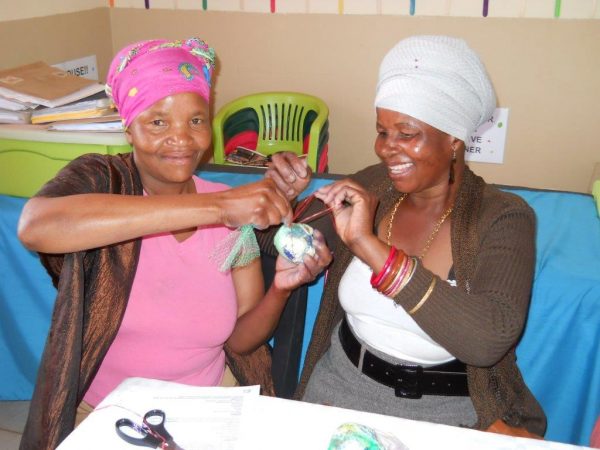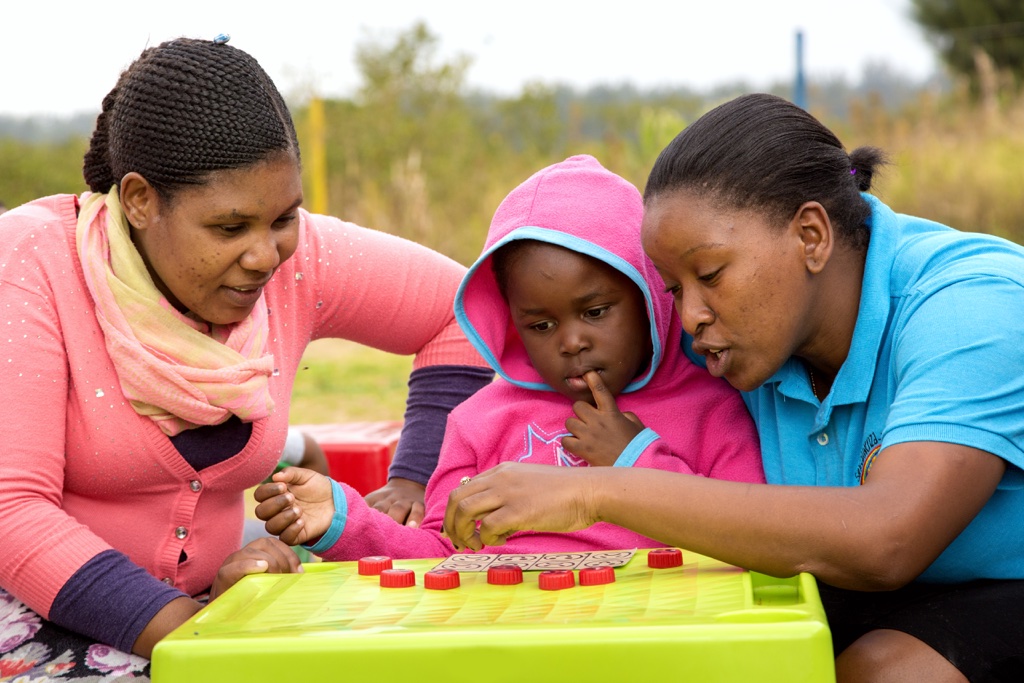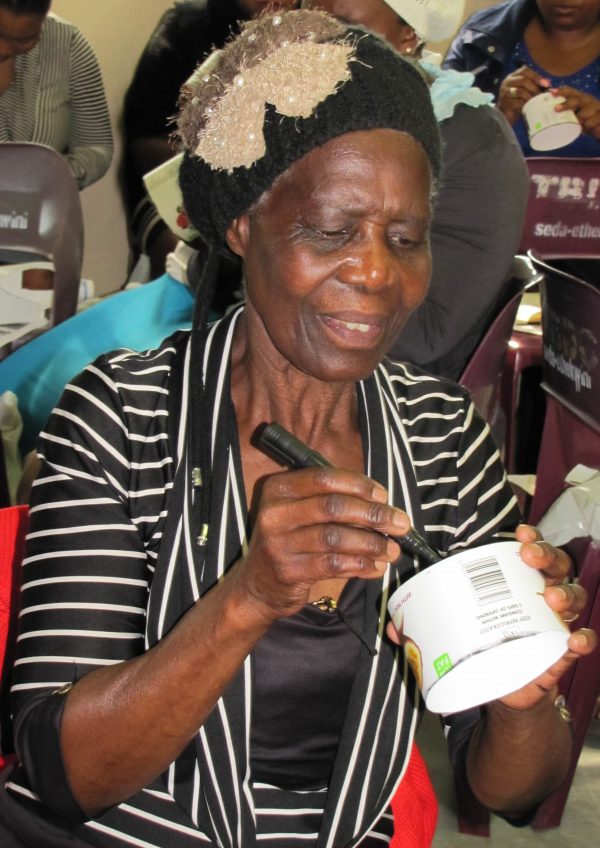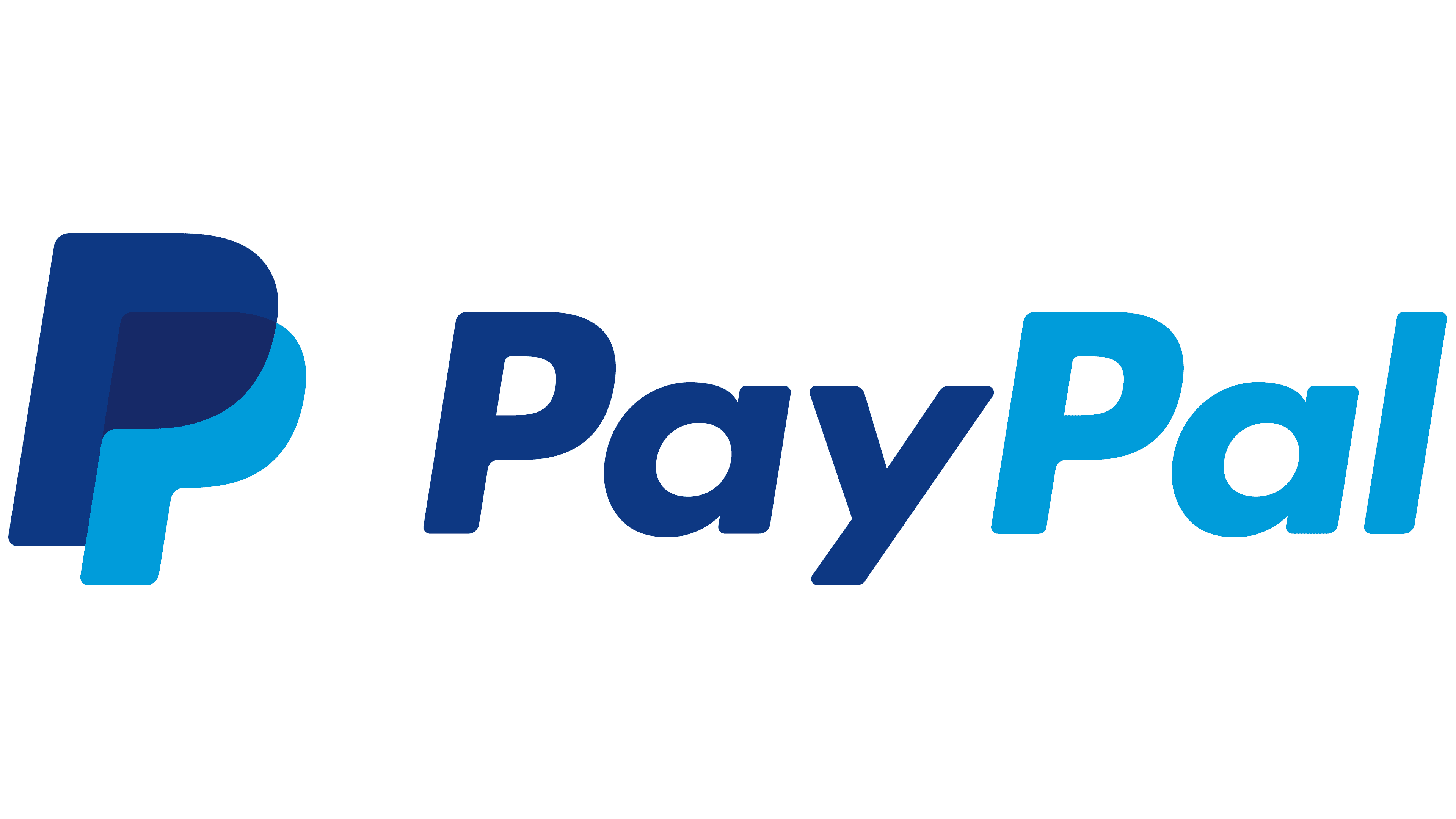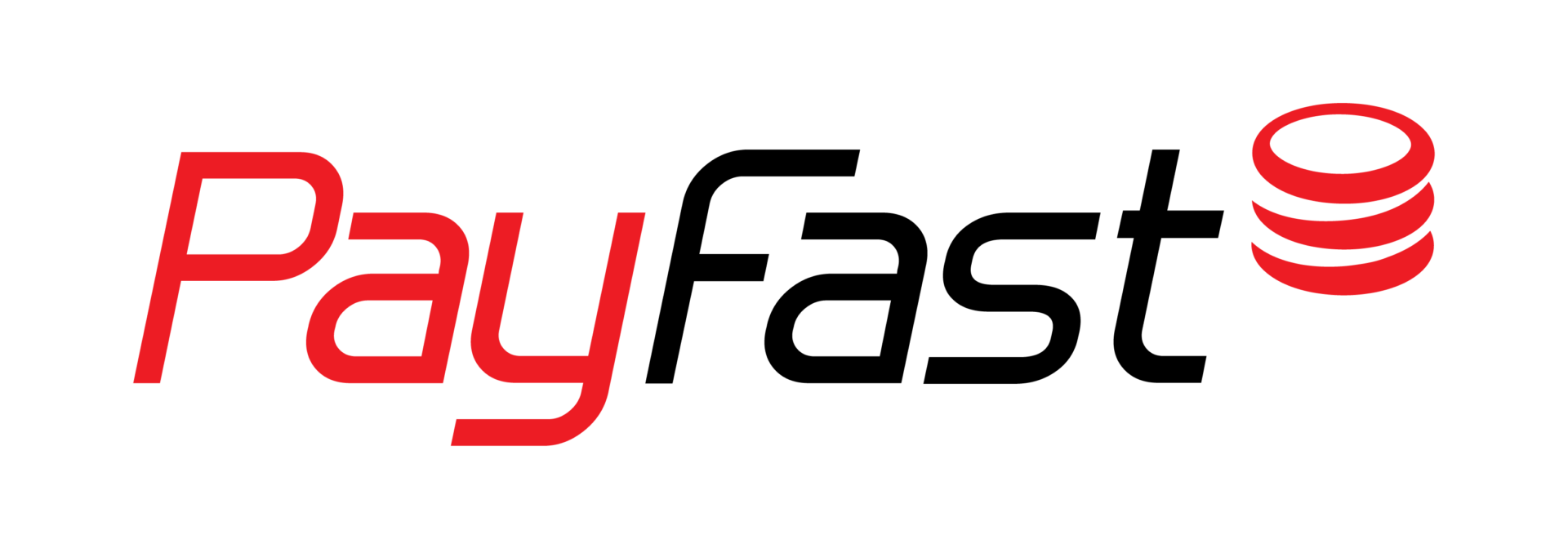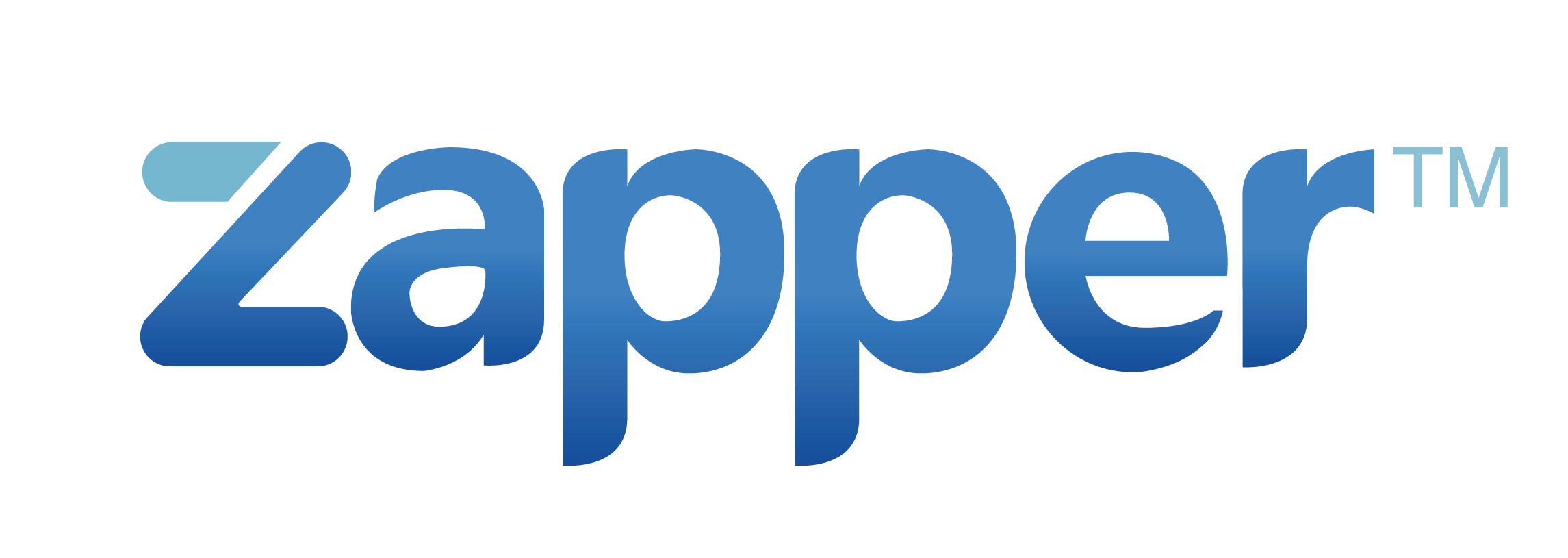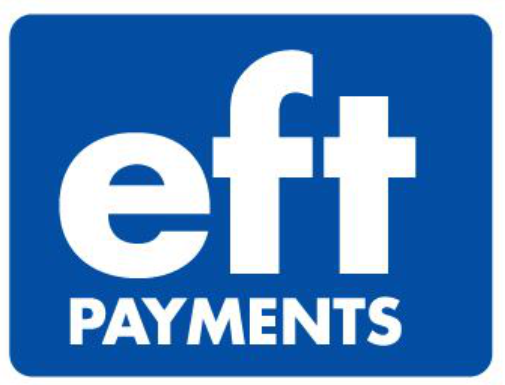TRAINING & MENTORSHIP PROGRAM
Singakwenza believes strongly in empowering women, especially those practitioners who show enthusiasm, initiative and commitment. Our program provides free training and mentorship to practitioners on-site attheir crèches and helps to transform them from babysitters to facilitators who understand, and can implement, purposeful play activities every day.
Our trainers spend one day a week in each crèche, teaching and mentoring practitioners on how to educate the children in their care using resources made from recycling. These trainers work with their practitioners every week for a minimum of two years, guiding, modelling and encouraging them towards a daily structured and educational program that is fun and engaging.
We encourage practitioners to grow their crèches not only into centres where every child has the opportunity to develop their potential, but also into sustainable businesses so that they can continue independently once we leave. There are currently eight Singakwenza trainers.
Our model focuses on developing the foundational skills needed to prepare children to thrive in formal education. The holistic development of the child, from Gross and Fine Motor skills to coordination, pre-Literacy and pre-Numeracy, are incorporated in this play-based program.
The objective of the model is to ensure that all children, irrespective of the level of poverty of their home environment, have the opportunity to experience an extensive range of activities using a wide variety of toys and learning materials to provide opportunities for holistic development.
OCCUPATIONAL THERAPY PROGRAM
To ensure that no children are disadvantaged by developmental delays, we employ 2 Occupational Therapists (OTs) who regularly visit all the crèches Singakwenza supports, providing free occupational therapy advice to practitioners, learners and parents. The OTs ensure that the practitioners understand the process to follow when they suspect that there may be an issue that could interfere with a child’s ability to learn. They teach practitioners how to identify potential barriers to learning (“red flags”), how they can help children with mild issues in the creche, and who to refer children to that have more severe problems. The OTs also assess children in each crèche that the practitioner has identified as presenting with these “red flags”. They give the practitioners programmes they can do with some children, made using household packaging, and liaise with the government services in various communities, especially medical team members at both primary healthcare and hospital levels. They also provide annual vision screening for the children going to formal education the following year which helps to pick up problems before the children get lost in the school system.
BASIC BOOKKEEPING PROGRAM
Each crèche owner has the opportunity to participate in our basic bookkeeping training course if they wish. Our trainer guides the owners through the process of invoicing, receipting, collating all expense slips, and cross-referencing to make sure all the invoices have been paid and receipted. He then moves onto teaching them how to enter their income and expenses into a simple cash book. He mentors them until they are able to run a basic set of books correctly, so that they can build their crèches into small, sustainable businesses.
WASTE 2 TOYS TRAINING WORKSHOPS
The Singakwenza Waste2Toys workshops are fun, hands-on training sessions which teach parents, practitioners and community workers how to make their own toys and teaching materials using recycling, and how to play with these with their children to develop foundational skills.
Our goal at these workshops is to help practitioners and parents understand that it is the play that is important, not how much the toys cost.
Expensive equipment is not what determines how well children learn. The same skills are developed when using a skipping rope made from bread bags or one bought from a shop. All that is needed to provide purposeful play activities is a dedicated, enthusiastic adult with a pair of scissors, a marker pen and access to a whole lot of recycling.
We offer a number of different three-hour workshops to teach different skills: Gross Motor, Fine Motor, Stages and Types of Play, Numeracy, and Literacy. We can present these Waste2Toys workshops in isiZulu, isiXhosa, Sesotho or English, or any other language if a translator is provided, for groups of around 25 people at a time. We travel throughout South Africa and to other countries (if funding is available) to present this training.
“Singakwenza taught me how to make educational toys by using recycling. Now we don’t buy toys, we just collecting plastic bottles and lids, bread bags to make jumping ropes. I am using these toys in activities that support the developmental need of our learners. These toys are so helpful to us because we don’t have enough money to buy expensive toys.” Buhle, practitioner
